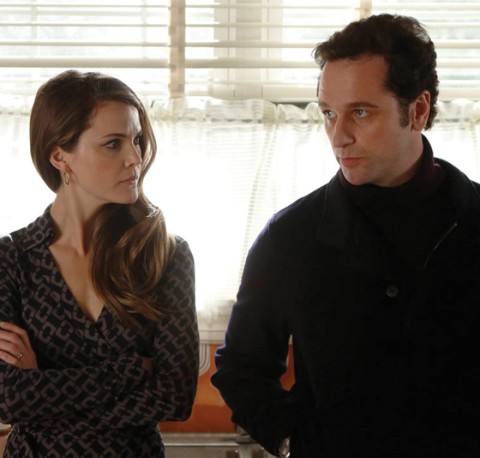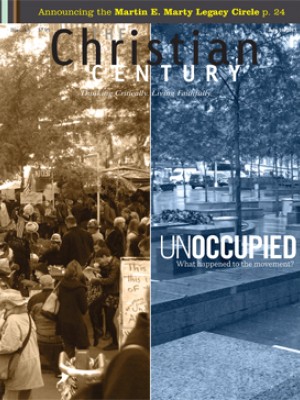Fake marriage, real kids

More than a spy show, FX’s The Americans is a thought-provoking meditation on marriage, identity and the power of culture. Season one premiered last January and a second season is planned for next winter.
Matthew Rhys and Keri Russell star as Philip and Elizabeth Jennings, an ordinary suburban couple who are not what they pretend to be. Their two kids and white picket fence, their jobs as travel agents, their laundry room and the plates of food they offer to welcome new neighbors do not convey their real life at all. Their marriage is a cover for their mission. Philip and Elizabeth are Soviet spies.
The show is set in Reagan-era Washington, D.C., in the shadow of the cold war. The period details—a trendy six-foot sub sandwich at a neighborhood party, a Rubik’s Cube, giant eyeglasses that are suddenly back in style—are carefully done. The spy intrigue is fun to watch and reasonably well plotted. What really makes the show intriguing, however, are the challenges created for viewers, because it’s hard not to identify with the couple as they pretend to be what we are, everyday Americans.
Read our latest issue or browse back issues.
As the show highlights the contrast between the lunch-making, carpooling mom and the spy with a hidden arsenal, I think of how much parental identity and humanity is hidden from sons and daughters. How might our children, like Elizabeth’s, be threatened or disillusioned if they knew who mom and dad really are? And who among the married can’t identify with the sense that they might be wed to a stranger?
When we meet Elizabeth and Philip, they have been living as husband and wife for more than a decade, but they do not even know each other’s real names. They are forbidden to speak to one another in their mother tongue or know of the other’s true past. Neither knows why each committed to the life they are leading.
As they enact a marriage for their kids and their neighbors, their “real” lives as spies sometimes require actions incompatible with their cover. They are meant to have an understanding, for instance, that each will use sex with other people as a tool for their missions, but this arrangement creates inevitable problems for their relationship. A hidden identity is a hard thing to nourish, and an identity embodied in habit and practice is a harder thing to disavow.
The storyline plays with the tensions created when there is a difference between identity and self-presentation, between hidden purpose and what one shows to the world. The house, the marriage and the kids may be meant as a cover, but it turns out that when you live with someone for years on end, when you care for children from diapers to braces, your daily life will threaten to become your real life.
Scripture speaks of the way domestic life shapes who we are and how we worship when the Lord commands Israel not to “enter into marriage” with those who “will surely incline your heart to follow their gods’” (1 Kings 11:2). When King Solomon flouts this command and clings to his foreign wives in love, his “heart is turned” and he is “not true to the Lord his God” (1 Kings 11:4).
Will Philip and Elizabeth be able to stay loyal to their country despite the comforts of air-conditioning, the evident good heartedness of their neighbors and—most pressing—the act of being married with children? Even their KGB superiors recognize this dilemma, using their children against them in a test of loyalty.
Maybe the force of habit, the power of what we do in the body day after day, is so strong it cannot be resisted. Maybe there are no fake lives. Certainly there are no fake children. The preacher in me thinks of the implications of daily routines and the cultural air we breathe for Christian lives.
American Christians are in a position not wholly unlike Elizabeth and Philip’s. To be a follower of Jesus Christ is to belong not to the kingdoms of this world but to the kingdom of God, to be “citizens with the saints and also members of the household of God” (Eph. 2:19). We are meant to love this place we call our home and more so the people—the husbands and wives, sons and daughters, and neighbors we live with. At the same time, we would be unwise to deny the power of the culture to incline our hearts away from God.
The Americans is testimony to what happens when one tries to split life in two, to have a public and private face. Unlike Elizabeth and Philip, we are called to lead integrated lives in which our allegiance to God is embodied in public and cemented by what we do from day to day.






